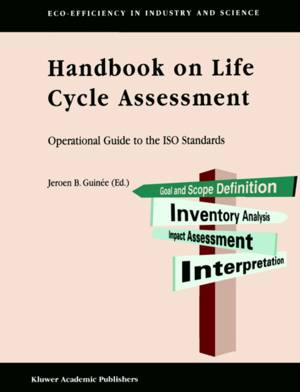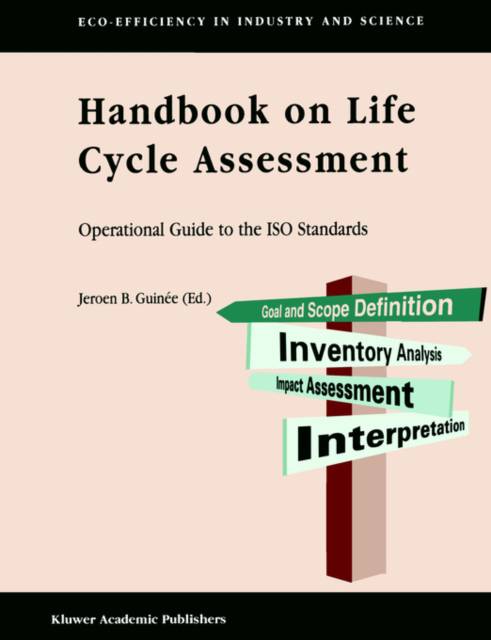
- Afhalen na 1 uur in een winkel met voorraad
- Gratis thuislevering in België vanaf € 30
- Ruim aanbod met 7 miljoen producten
- Afhalen na 1 uur in een winkel met voorraad
- Gratis thuislevering in België vanaf € 30
- Ruim aanbod met 7 miljoen producten
Zoeken
€ 503,95
+ 1007 punten
Omschrijving
Environmental policy aims at the transition to sustainable production and consumption. This is taking place in different ways and at different levels. In cases where businesses are continuously active to improve the environmental performance of their products and activities, the availability of knowledge on environmental impacts is indispensable. The integrated assessment of all environmental impacts from cradle to grave is the basis for many decisions relating to achieving improved products and services. The assessment tool most widely used for this is the environmental Life Cycle Assessment, or LCA. Before you is the new Handbook of LCA replacing the previous edition of 1992. New developments in LCA methodology from all over the world have been discussed and, where possible, included in this new Handbook. Integration of all developments into a new, consistent method has been the main aim for the new Handbook. The thinking on environment and sustainability is, however, quickly evolving so that it is already clear now that this new LCA Handbook does not embrace the very latest developments. Therefore, further revisions will have to take place in the future. A major advantage of this Handbook is that it now also advises which procedures should be followed to achieve adequate, relevant and accepted results. Furthermore, the distinction between detailed and simplified LCA makes this Handbook more broadly applicable, while guidance is provided as to which additional information can be relevant for specialised applications.
Specificaties
Betrokkenen
- Auteur(s):
- Uitgeverij:
Inhoud
- Aantal bladzijden:
- 692
- Taal:
- Engels
- Reeks:
- Reeksnummer:
- nr. 7
Eigenschappen
- Productcode (EAN):
- 9781402005572
- Verschijningsdatum:
- 31/05/2002
- Uitvoering:
- Paperback
- Formaat:
- Trade paperback (VS)
- Afmetingen:
- 179 mm x 242 mm
- Gewicht:
- 1211 g

Alleen bij Standaard Boekhandel
+ 1007 punten op je klantenkaart van Standaard Boekhandel
Beoordelingen
We publiceren alleen reviews die voldoen aan de voorwaarden voor reviews. Bekijk onze voorwaarden voor reviews.











